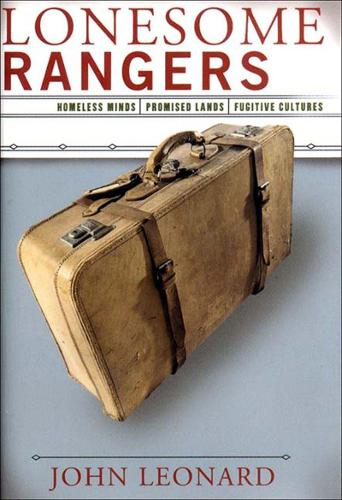
Lonesome Rangers: Homeless Minds, Promised Lands, Fugitive Cultures
(Hardback)
Publishing Details
Lonesome Rangers: Homeless Minds, Promised Lands, Fugitive Cultures
By (Author) John Leonard
The New Press
The New Press
10th May 2002
United States
Classifications
General
Non Fiction
814.54
Physical Properties
Hardback
352
Width 139mm, Height 209mm
524g
Description
John Leonard, "the fastest wit in the East" (The New York Times Book Review), is back with the offbeat, wide-ranging style that earned his last book, When the Kissing Had to Stop, a place among the Voice Literary Supplement's "25 Favorites of 1999." Now, with an eye to the social and political experience of writers, Leonard adopts a broad definition of exile.
He addresses Robert Putnam's Bowling Alone, where exile manifests itself in solitary bowling, a reflection of a declining sense of community. He considers Salman Rushdie as rock'n'roll Orpheus, whoafter ten years in fatwa-enforced exilebears a striking resemblance to his continually disappearing characters. And Leonard also explores Primo Levi's exile of survival, Bruce Chatwin's self-imposed exile in travel, as well as the work of Saul Bellow, Ralph Ellison, Phillip Roth, Barbara Kingsolver, and Don DeLillo, among others.
As always, Leonard's writing jumps off the page, engaging the reader in what the Washington Post calls his "laugh-out-loud magic with words."
Author Bio
John Leonard, "the fastest wit in the East" (The New York Times Book Review), is back with the offbeat, wide-ranging style that earned his last book, When the Kissing Had to Stop, a place among the Voice Literary Supplement's "25 Favorites of 1999." Now, with an eye to the social and political experience of writers, Leonard adopts a broad definition of exile.
He addresses Robert Putnam's Bowling Alone, where exile manifests itself in solitary bowling, a reflection of a declining sense of community. He considers Salman Rushdie as rock'n'roll Orpheus, whoafter ten years in fatwa-enforced exilebears a striking resemblance to his continually disappearing characters. And Leonard also explores Primo Levi's exile of survival, Bruce Chatwin's self-imposed exile in travel, as well as the work of Saul Bellow, Ralph Ellison, Phillip Roth, Barbara Kingsolver, and Don DeLillo, among others.
As always, Leonard's writing jumps off the page, engaging the reader in what the Washington Post calls his "laugh-out-loud magic with words."
